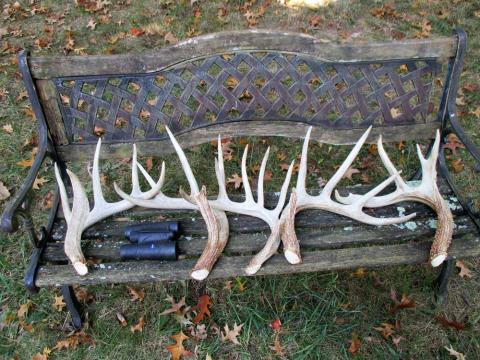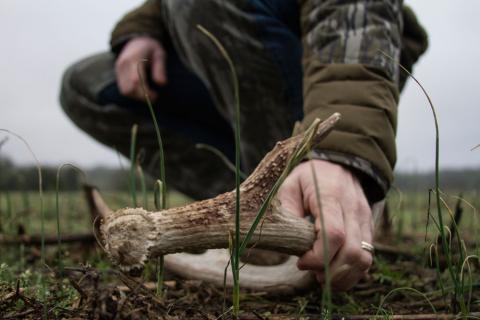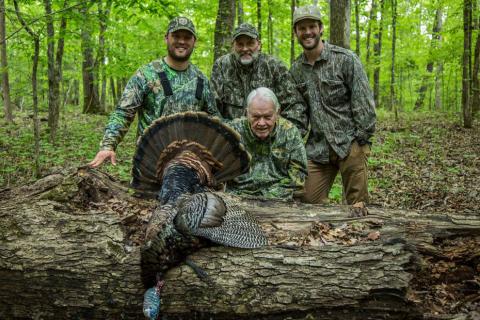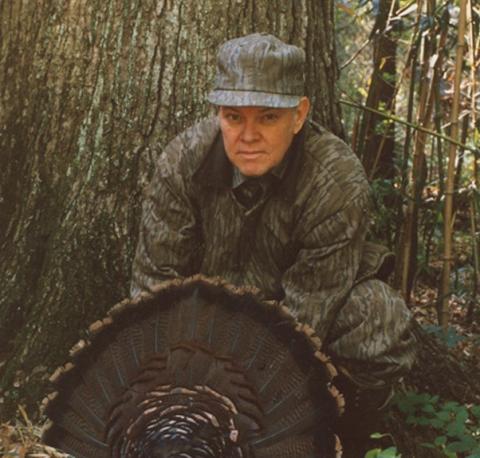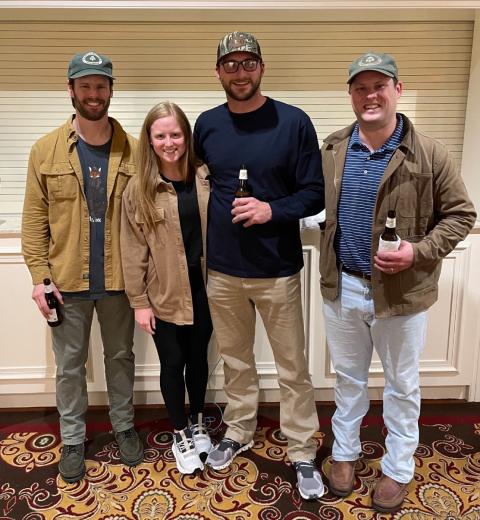As a physical and mental pursuit, few tasks are as demanding as backcountry hunting. It requires an elite level of stamina to not only traverse the backcountry effectively but to do so with enough mental strength to hit your target when the time comes. Backcountry hunts regularly last for several days, with hunters relying on the bare minimum essential equipment, food and water.
When pushing your body to the limits, injuries are common, particularly when you consider frequent elevation changes and limited sleep. Recovery and muscle relief are essential during and after a backcountry hunt. Learning to recover appropriately can help reduce the long-term effects on your body, minimize the risk of injury and, ultimately, prolong your career as a backcountry hunter.
If you train hard year-round to keep in shape, you must consider recovery a vital part of the process. From getting quality sleep to optimizing your diet, our guide takes you through ways to recover effectively and relieve muscle soreness from a backcountry hunt.
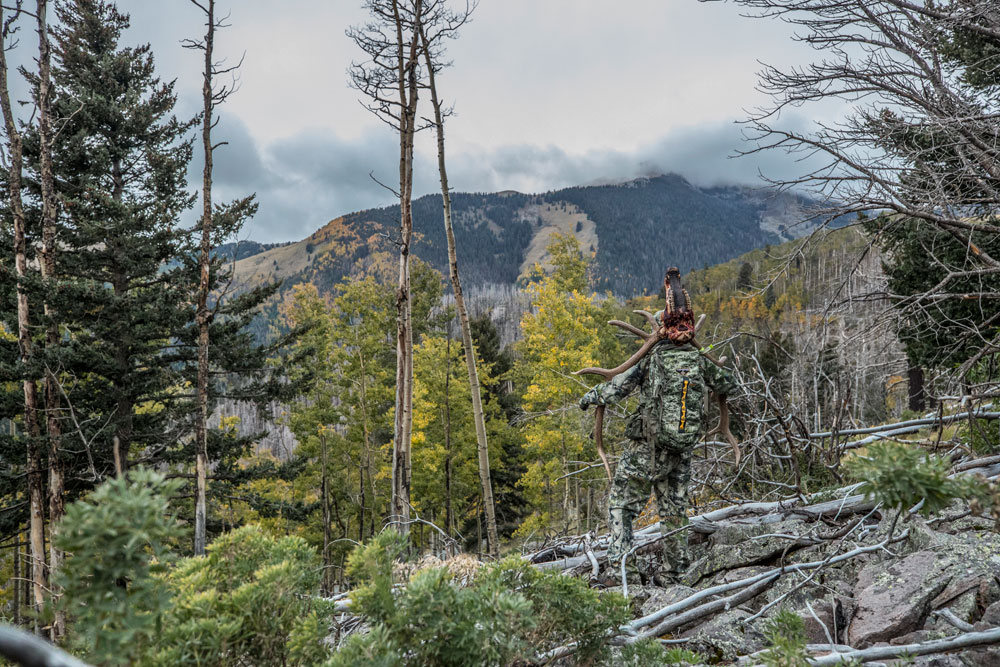
Sleep Is Your Most Powerful Recovery Tool
Sleep is essential for muscle recovery. It’s even more critical if you plan on successive days of intensive exercise. Sleep promotes muscle recovery via protein synthesis and a natural release of human growth hormone. Although seven to nine hours of sleep is optimal, backcountry hunters don’t necessarily need multiple hours of deep sleep to recover well.
Rapid eye movement (REM) is the deepest stage of sleep. It accounts for around a quarter of your total sleep time. REM is essential for revitalizing the brain for optimal cognitive functioning during waking hours. While this is good for concentration levels, it isn’t as crucial for muscle recovery.
When sleeping in unfamiliar or uncomfortable surroundings, such as backcountry camping, it can be difficult to sleep deeply for long periods. Fortunately, non-REM sleep is the most crucial stage for muscle recovery and physical restoration. While your brain rests, it operates with limited activity, allowing more of your body’s blood supply to flow to the muscles. This delivers more oxygen and nutrients, which contribute to healing and rejuvenation.
Although conditions may be difficult, hunters should prioritize getting several hours of sleep every night while hunting. When they return from a hunt, hunters should aim for at least seven hours to help their bodies recover.
Optimize Your Nutrition
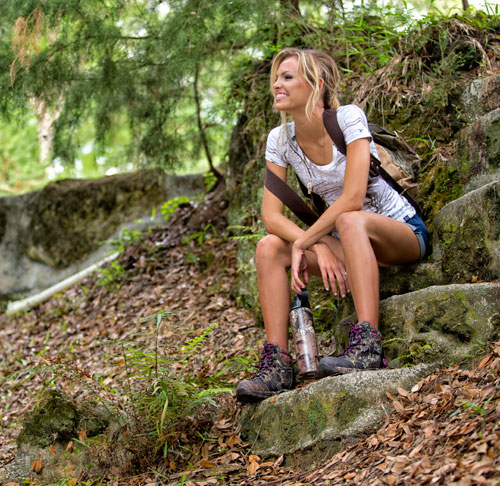
Preparing nutritionally for a big hunt can be a balancing act. The energy output of a multiple-day backcountry adventure is high enough to warrant you taking half the contents of your refrigerator with you. However, that becomes a little tricky when your backpack is the only mode of food transport.
Although rationing is necessary, over-deprivation depletes your energy levels and impedes recovery significantly. Getting your nutritional intake right before, during and after a hunt is vital for recovery and pain relief.
In the days leading up to a hunt, increase your calorie intake to ensure you have ample energy stores as you begin. Protein-rich meals packed with nutritionally dense foods, such as whole grains, fatty fish, leafy greens, nuts and seeds, are best for fueling the muscles and enabling them to recover well.
For the hunt itself, setting a calorie goal is the best way to keep your muscles replenished. Recommended caloric intake varies from person to person, but you can estimate an extra 500 to 1,000 calories per day will be necessary to fuel your body and recover your muscles during a hunt. Consider your body weight, the terrain and daily distance covered when setting your calorie goal.
Macronutrients should be tailored to the individual. However, to generate energy and to aid muscle recovery, carbohydrates and quality protein are key. Oatmeal, bananas, jerky and freeze-dried meats are excellent foods to take with you on a hunt. BCAA protein supplements are also helpful, as they trigger pathways for muscle repair.
Pre-prepared dehydrated meals are often the best and most space-efficient way of carrying nutrition-dense food while hunting.
Monitor Your Hydration Levels
Even with the best food and caloric plan for hunting, without adequate hydration your muscles will become sore and fatigued. Hiking with a hunting backpack can cause you to expend significant amounts of energy through perspiration, and you’ll run the risk of dehydration.
It’s essential to make a conscious effort to drink water, whether or not you feel thirsty or dehydrated. Water helps to dilute lactic acid build-up in your muscles, allowing you to work harder and for longer periods. Optimal hydration allows your body to absorb nutrients into your cells faster, leading to better recovery.
The easiest way to monitor hydration levels is by evaluating your urine. It should be clear or pale. Dark urine indicates dehydration.
Adding electrolytes to water can be an effective way of staying hydrated during and after a backcountry hunting trip. Electrolyte powders and sports drinks contain sodium, calcium and potassium, which help your body metabolize energy and facilitate muscle contractions.
Stretching
Stretching may not be a priority for most hunters, but it is tremendously beneficial for recovery and muscle pain relief. As an underutilized activity in most sports, stretching can increase flexibility, minimize injury risk and aid recovery.
By implementing stretching as a part of your regular exercise routine, you can increase flexibility and range of motion. This helps when unpredictable topography makes hiking, walking and climbing challenging.
Stretching throughout a hunting trip can help relieve muscle tightness, keeping you limber and reducing soreness. Stretching your muscles post-hike promotes blood flow, allowing oxygen and nutrients to flood the muscles, speeding up recovery.
Recover at Home Using Compression Clothing
Compression clothing is excellent for muscle recovery and should be used to relieve muscle soreness when you return from a hunting trip. Compression clothing creates a pressure gradient that allows better blood circulation and promotes the removal of lactic acid and cellular waste from your muscles. It also reduces muscular oscillations, leading to less stress on the muscle tissues.
Compression recovery at home is recommended because this is the period where delayed onset muscle soreness (DOMS) kicks in. Many hunts end with a steep descent while carrying significant weight. After several days of hunting, this can burn out your upper leg muscles, such as the hamstrings, quads and glutes. Invest in quality compression clothing and use it to recover post-hunt.
Become a Hunter Athlete
If you regularly take part in grueling backcountry hunts, you should start to regard yourself as a hunter athlete. Recovery plays a huge part in an athlete’s life, and it’s multifaceted. From sleep to nutrition and from stretching to home recovery, focus on optimizing your body.


















